On 7 May 2024, the Office of the Permanent Secretary, Ministry of Higher Education, Science, Research and Innovation (MHESI), hosted a workshop aimed at devising strategies for implementing higher education, science, research, and innovation and establishing MHESI’s provincialoffices to bolster provincial capabilities. Ms. Sunee Lertpienthum, Inspector General at MHESI, delivered the opening remarks, explaining the background and objectives of the initiative to elevate provincial potential through higher education, science, research, and innovation.

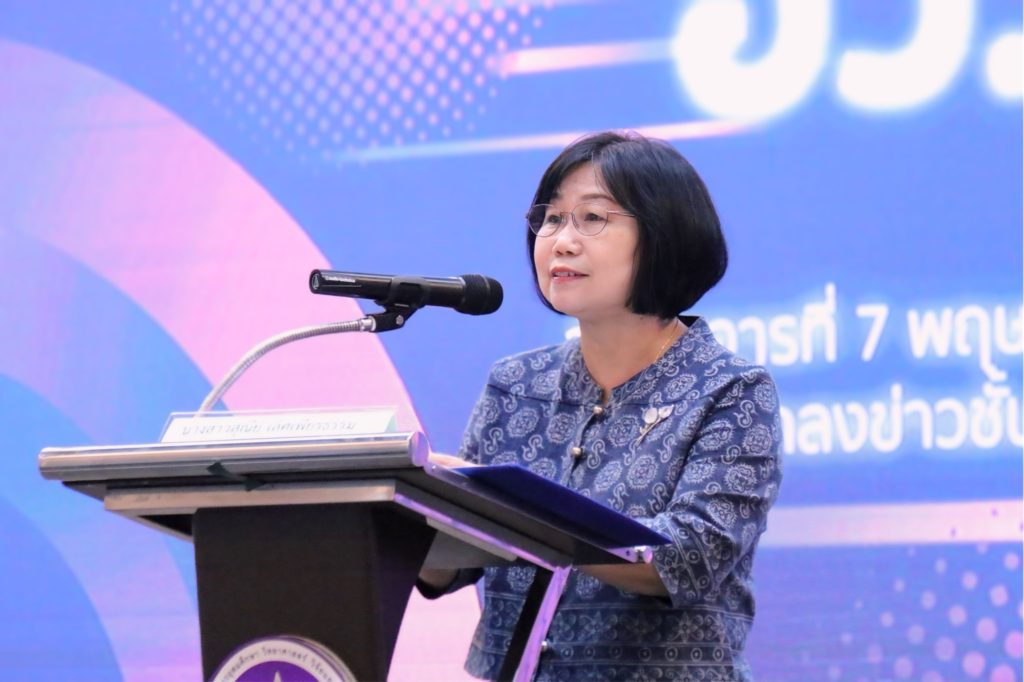
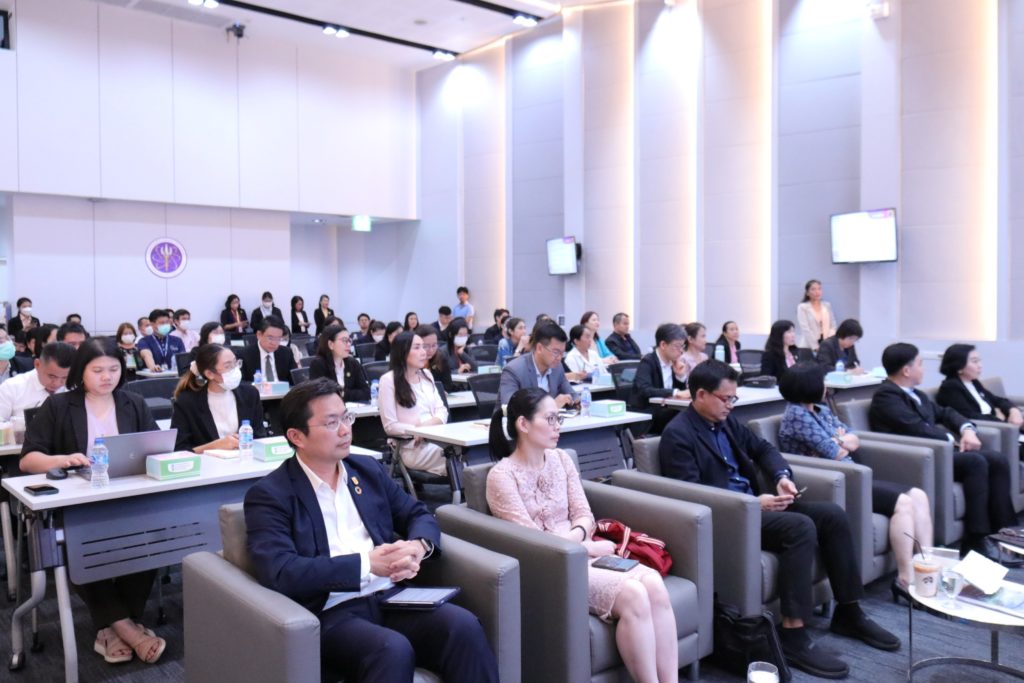
The workshop featured a panel discussion with panelists including Dr. Kitipong Promwong, President of NXPO; Dr. Santi Charoenpornpattana, Vice President for Planning & Strategy at King Mongkut’s University of Technology Thonburi (KMUTT); and Dr. Kitti Satjawattana, Director of the Program Management Unit on Area-Based Development (PMU A). The session was moderated by Mr. Ekapong Musikacharoen, Division Director at MHESI.
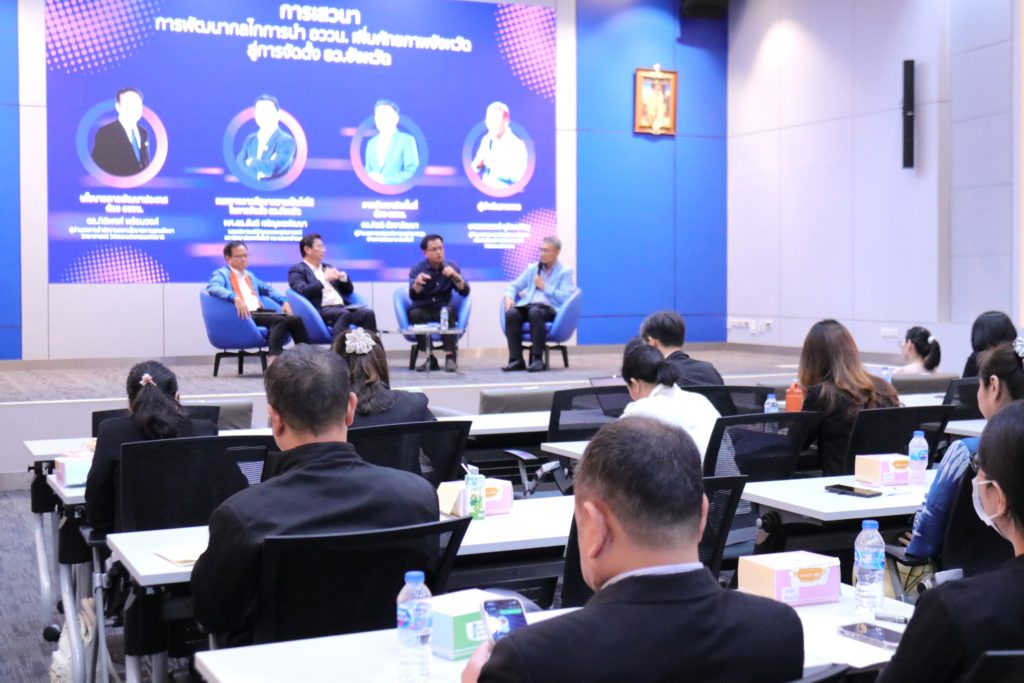
During his presentation, Dr. Kitipong stressed the necessity of aligning provincial goals with local contexts and establishing clear government policies for provincial development. Structure, process and people are among the key success factors. He outlined four pivotal drivers of provincial development in Thailand: economic background, food industry, creative economy, and creative content, all of which stand to benefit significantly from technology and innovation.

“We must intensify efforts in area-based development, fostering growth poles within economic zones and cultivating a supportive ecosystem,” explained Dr. Kitipong. “We can leverage Thailand’s successes, such as in tourism, by selecting ten cities to pioneer an innovation-driven tourism model, engaging local communities with funding and support from both central and local government bodies. This initiative will promote job creation, income generation, and bolster both provincial and national economies.”
Dr. Kitipong expressed support for establishing MHESI’s provincial offices, emphasizing the importance of being demand-oriented, supply-oriented, and result-oriented. He underscored the necessity of community involvement and advocated for fostering an ecosystem equipped with adequate funding, supportive legal frameworks, and incentive structures.
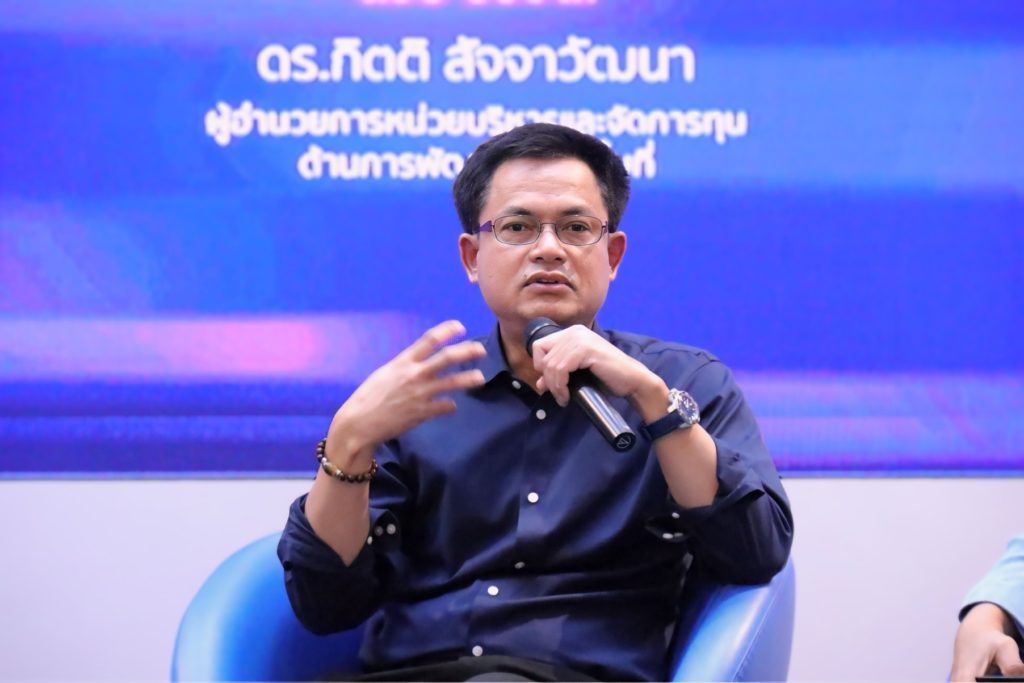
Dr. Kitti emphasized the significance of understanding local contexts and people and the core concepts of area-based approach which are decentralizing the economic development and promoting community involvement. He also highlighted the importance of supporting grassroots initiatives, community enterprises, and local SMEs. In addition, he discussed the poverty eradication platform that has been established by PMU A. This platform focuses on developing grassroots economies by promoting capacity building and the cultural-based economy. Through the collaboration between universities and communities, the platform has resulted in tangible outcomes and significant impacts.
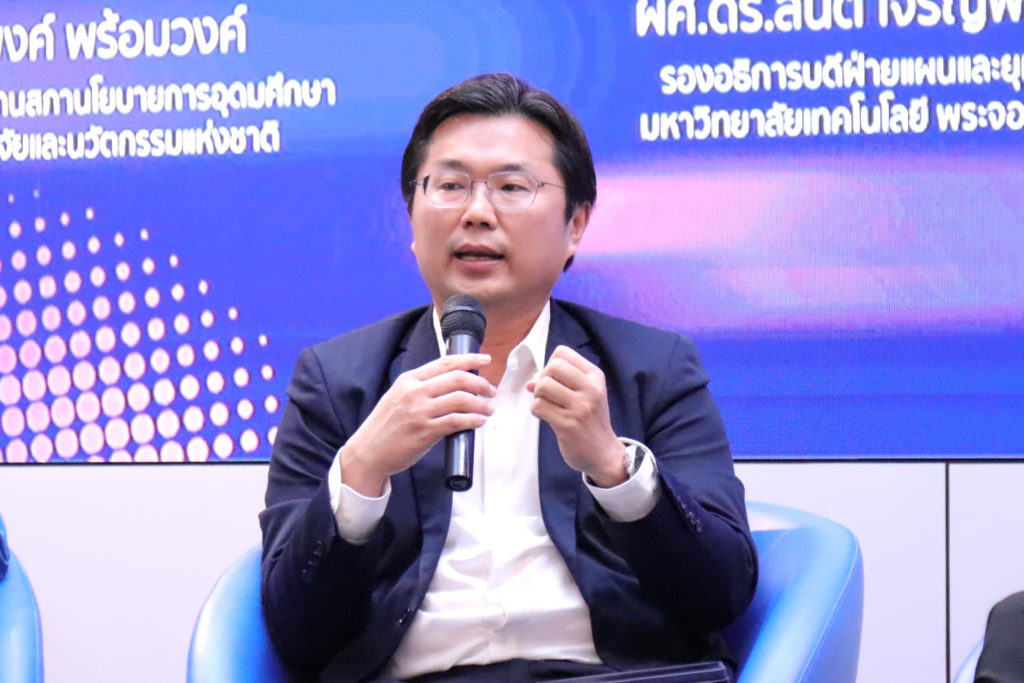
Dr. Santi outlined three critical issues to be assessed in establishing MHESI’s provincial offices: 1) MHESI’s roles and mandates in regional development, 2) cost-effective implementing methodology, and 3) organizational structures, including staff and mandates of these offices. He suggested that MHESI may need to review its overall operations, including budget allocation, to ensure the success of this initiative.






















